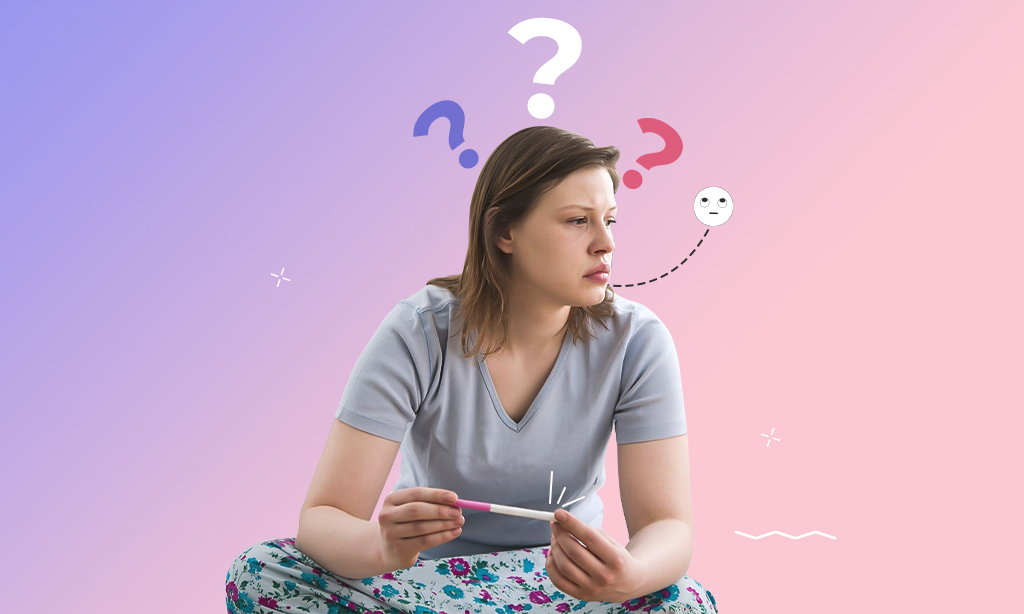The human body operates as an intricate symphony of biological processes, and the menstrual cycle stands as a testament to this complexity. Among the various phases within this cycle, ovulation often garners attention not just for its role in fertility but also for the perceived impact it may have on emotions.
Ovulation marks a pivotal moment in the menstrual cycle, characterized by the release of an egg from the ovary. While its primary function lies in facilitating reproduction, anecdotal evidence and cultural narratives have long suggested a curious correlation between ovulation and emotional fluctuations. Many have claimed that this phase brings about a surge in emotions, leading to heightened sensitivity, mood swings, or even increased irritability.
However, amidst these widely held beliefs, a critical question persists: does ovulation truly induce emotional changes, or is it a product of myths passed down through generations?
Recommended: Does Family Planning Affect Future Pregnancy?
Understanding the dynamics of the menstrual cycle, the hormonal interplay, and the potential influence on emotions during ovulation requires a closer examination. This exploration goes beyond mere anecdotal evidence, delving into scientific research and personal experiences to unravel the truth behind this intriguing phenomenon.
Understanding Ovulation
Ovulation, a cornerstone of the menstrual cycle, represents a pivotal moment in a woman’s reproductive journey. It occurs typically around the midpoint of the menstrual cycle, where a mature egg is released from the ovary, poised to journey through the fallopian tube in anticipation of fertilization.
This intricate biological phenomenon is orchestrated by a delicate interplay of hormones. The follicular phase, preceding ovulation, witnesses the rise of follicle-stimulating hormone (FSH), which prompts the maturation of an egg within the ovarian follicle. This culminates in a surge of luteinizing hormone (LH), triggering the release of the matured egg into the fallopian tube.
Recommended: How To Get Rid Of Smelly Discharge During Pregnancy
Amidst this process, hormonal dynamics undergo significant shifts. Estrogen, the primary hormone dominating the first half of the menstrual cycle, peaks just before ovulation, facilitating the release of the egg. Subsequently, progesterone levels begin to rise after ovulation, preparing the uterus for a potential pregnancy.
These hormonal fluctuations play a crucial role not only in the physical aspects of reproduction but also in potentially influencing emotional states. Estrogen, often dubbed the ‘feel-good hormone,’ has been associated with mood regulation, cognitive function, and emotional well-being. Progesterone, on the other hand, might have calming effects but could also contribute to fluctuations in mood.

However, the direct correlation between these hormonal changes during ovulation and emotional upheaval remains a topic of debate and intrigue among researchers. While the hormonal cascade is undeniable, its explicit impact on emotional states during ovulation requires deeper scrutiny.
Recommended: Can a Woman Have an Orgasm After Menopause?
Understanding ovulation, therefore, transcends the mere release of an egg; it encompasses a symphony of hormonal fluctuations that might intricately weave into the emotional fabric experienced by women during this phase of the menstrual cycle. Exploring this nexus between biology and emotions offers a deeper insight into the complexities of the female body and the enigmatic nature of the ovulatory phase.
Hormones and Emotions
The intertwining relationship between hormones and emotions is a captivating area of study, particularly concerning the menstrual cycle and ovulation. Hormones, acting as messengers within the body, not only regulate physiological functions but also play a nuanced role in influencing mood and emotional states.
Estrogen, a predominant hormone during the follicular phase and peaking just before ovulation, exerts multifaceted effects on the brain. Research suggests that estrogen can modulate neurotransmitters like serotonin and dopamine, which are pivotal in regulating mood and emotions. This hormone’s influence extends to areas of the brain associated with emotional processing and cognition, potentially impacting how individuals experience and express emotions.
Recommended: Does Sex Affect Periods?
Conversely, progesterone, which rises post-ovulation, also plays a role in emotional regulation. While often linked to a calming effect due to its potential GABAergic properties, progesterone can also contribute to fluctuations in mood. This hormone’s interaction with the brain’s chemistry might influence emotional responses, albeit its specific mechanisms remain complex and not fully understood.
The intricate link between these hormones during the menstrual cycle hints at the potential for emotional fluctuations. Some studies have proposed that the surge in estrogen just before ovulation might coincide with increased emotional sensitivity or heightened emotions in certain individuals. However, the degree of impact and its universality among women remains a topic of ongoing research and debate.
Recommended: Can I Take Magnesium While Breastfeeding?
Furthermore, individual variations in hormonal sensitivity and emotional reactivity complicate the direct association between ovulation and emotional changes. While some individuals might notice distinct emotional shifts during this phase, others may experience minimal to no discernible changes in mood.

Understanding the influence of hormones on emotions during ovulation demands a nuanced approach, considering the interplay of multiple factors beyond hormonal fluctuations. External elements like stress, lifestyle, and individual predispositions can significantly modulate emotional experiences, blurring the delineation of hormonal influence on emotions during ovulation.
Recommended: 10 Best Vitamins For Hormonal Acne
Unraveling the intricate connection between hormones and emotions during ovulation requires a holistic perspective, acknowledging the multifaceted nature of these interactions and their potential impact on individual experiences.
Does Ovulation Make You Emotional?
Yes, ovulation can affect emotions due to hormonal fluctuations. Some women experience mood swings, increased sensitivity, or changes in emotional state during ovulation. Hormones like estrogen and progesterone rise and fall during the menstrual cycle, influencing mood, energy levels, and emotions in different ways. This can vary greatly from person to person, and not everyone experiences emotional changes during ovulation.
The intersection of ovulation and emotions often sparks discussions around potential emotional shifts experienced by individuals during this phase of the menstrual cycle. While the experiences can vary significantly among women, some commonly reported emotional changes during ovulation include:
- Heightened Sensitivity: Some women report feeling more emotionally attuned or sensitive during ovulation. Everyday occurrences might evoke stronger emotional reactions than usual.
- Mood Swings: Ovulation might coincide with fleeting changes in mood, where individuals find themselves oscillating between different emotional states more frequently.
- Irritability or Tension: A subset of individuals might experience heightened irritability or a decreased tolerance threshold during ovulation. Minor stressors could provoke stronger emotional responses.
- Enhanced Emotional Intimacy: Some individuals might express a heightened need for emotional closeness or intimacy during ovulation, seeking deeper connections with others.
- Changes in Libido: Ovulation is associated with increased fertility, and some women may experience a surge in libido or sexual desire during this phase, potentially influencing emotional experiences.
It’s essential to recognize that these emotional changes are not universally experienced by all individuals. Variability in emotional responses during ovulation is influenced by a multitude of factors, including hormonal fluctuations, personal temperament, external stressors, and individual differences in emotional regulation.
Recommended: Can You Drink Gatorade While Pregnant?
Moreover, attributing emotional changes solely to ovulation might oversimplify the intricate web of influences shaping emotional experiences. External factors, such as work-related stress, relationship dynamics, or lifestyle choices, can significantly modulate emotions, making it challenging to isolate the direct impact of ovulation on emotional states.
Understanding the spectrum of emotional changes reported during ovulation provides insight into the diverse experiences women may undergo. It underscores the complexity of emotions during this phase, emphasizing the need for a nuanced approach in interpreting and addressing these fluctuations.

Other Factors Influencing Emotions
While the menstrual cycle and ovulation’s hormonal fluctuations are often considered potential influencers of emotional states, several external factors also significantly impact emotions during this phase:
- Stress Levels: Elevated stress levels, whether related to work, personal life, or environmental factors, can amplify emotional responses during ovulation. Stress hormones like cortisol can intersect with reproductive hormones, potentially intensifying emotional experiences.
- Sleep and Fatigue: Inadequate sleep or disrupted sleep patterns might exacerbate emotional sensitivity. Fatigue can magnify emotional reactivity, making individuals more susceptible to mood swings or irritability during ovulation.
- Lifestyle Choices: Nutrition and physical activity play crucial roles in emotional well-being. Balanced diets and regular exercise can positively influence mood regulation, potentially mitigating emotional fluctuations during ovulation.
- Relationship Dynamics: Relationship dynamics, including romantic partnerships, friendships, or familial connections, profoundly impact emotional experiences. Supportive, nurturing relationships might buffer emotional upheavals during ovulation, while conflicts can exacerbate them.
- Psychological Factors: Individual coping strategies and psychological resilience significantly influence emotional responses. Those equipped with effective coping mechanisms might navigate emotional fluctuations during ovulation more adeptly than others.
- Hormonal Sensitivity: Women exhibit varying degrees of sensitivity to hormonal fluctuations. Some individuals might be more prone to experiencing pronounced emotional changes during ovulation, while others might notice minimal differences.
Recognizing the multifaceted nature of emotional experiences during ovulation necessitates acknowledging the intricate interplay of these external factors with the hormonal milieu. While hormones play a pivotal role, their effects are modulated and often intertwined with the broader context of an individual’s life circumstances and psychological well-being.
Recommended: Knee To Chest Position In Labor: All You Need To Know
Understanding the collective impact of these external factors alongside hormonal fluctuations is essential in comprehending and addressing emotional changes experienced during ovulation. It emphasizes the need for a holistic approach that considers the interplay of biological, psychological, and environmental influences on emotional well-being.
Research Findings and Evidence
Research into ovulation and emotional changes has garnered substantial interest, shedding light on how hormonal fluctuations impact emotions. Several studies have contributed to understanding this intricate relationship:
- Hormonal Influence: Research has consistently shown that hormonal changes during the menstrual cycle, particularly around ovulation, can affect mood. Studies have observed fluctuations in estrogen and progesterone levels correlating with changes in mood, emotional sensitivity, and energy levels across the menstrual cycle.
- Emotional Responsiveness: Investigations into emotional responsiveness during ovulation suggest heightened sensitivity to emotional stimuli. Studies indicate that women might be more attuned to facial expressions, social cues, and emotional nuances during this phase.
- Cognitive Effects: Research has explored the cognitive effects of ovulation, revealing potential impacts on decision-making, risk-taking behavior, and social perceptions. Some studies suggest that women might exhibit different preferences in partners or altered behaviors during ovulation, which could influence emotional experiences.
- Neurobiological Mechanisms: Neuroimaging studies have attempted to uncover the neurobiological underpinnings of emotional changes during ovulation. These studies often focus on brain regions associated with emotion regulation and social cognition, aiming to link hormonal fluctuations with neural activity.
- Individual Variability: While research indicates general patterns, there’s recognition of individual variability in emotional responses to ovulation. Factors like stress, pre-existing mood disorders, and personal differences in hormone sensitivity can modulate the emotional impact of ovulation.
- Psychological Well-being: Longitudinal studies have explored the relationship between hormonal changes during ovulation and overall psychological well-being. They’ve attempted to discern whether emotional fluctuations during this phase contribute significantly to mood disorders or affective symptoms.
Recommended: Top 4 Signs That a Man Has Not Been Sexually Active
These studies collectively contribute to a nuanced understanding of how ovulation influences emotions. However, ongoing research is crucial to delve deeper into the complexities of this relationship, considering diverse populations, individual variations, and the interplay between hormones, brain activity, and emotional experiences.
Debunking Myths and Misconceptions
The intersection of ovulation and emotions has been shrouded in numerous myths and misconceptions over time. It’s crucial to separate fact from fiction to gain a clearer understanding of the emotional dynamics during this phase of the menstrual cycle:
1. Myth: Ovulation Invariably Leads to Extreme Mood Swings
Reality: While some individuals might experience emotional changes during ovulation, it’s not a universal phenomenon. Studies suggest that emotional fluctuations during this phase vary among women, with some reporting subtle changes or even no discernible emotional shifts.
2. Myth: Emotional Changes During Ovulation Are Uniform and Predictable
Reality: Emotional responses are highly individualized and influenced by numerous factors. The idea of a standardized emotional pattern during ovulation oversimplifies the diverse range of emotional experiences reported by women.
3. Myth: Ovulation-Induced Emotions Are Always Negative
Reality: Emotional changes during ovulation aren’t always negative. While some individuals might report feelings of irritability or sensitivity, others might experience heightened positive emotions or a sense of vitality and empowerment.
4. Myth: Hormones Are Solely Responsible for Emotional Changes
Reality: While hormones play a significant role, emotions during ovulation are multifaceted. External factors like stress, lifestyle choices, and psychological well-being interact with hormonal fluctuations, shaping emotional experiences.
5. Myth: Emotional Changes During Ovulation Are Abnormal or Uncontrollable
Reality: Experiencing emotional shifts during ovulation is a normal variation within the menstrual cycle. It’s crucial to normalize and validate these experiences while offering coping strategies for individuals who might find these changes distressing.
6. Myth: Emotional Fluctuations Always Require Intervention
Reality: Mild emotional changes during ovulation often resolve without intervention. However, if emotional experiences significantly disrupt daily life or persist beyond the ovulatory phase, seeking professional guidance can be beneficial.
Debunking these myths fosters a more nuanced understanding of emotional experiences during ovulation. It emphasizes the need to move beyond generalized assumptions and acknowledge the individualized nature of emotional responses within the context of the menstrual cycle.
Recommended: Does Blue Cross Blue Shield Cover Testosterone Treatment?
Recognizing that variability in emotional experiences during ovulation is normal and that these experiences manifest differently among individuals is crucial. This understanding empowers individuals to embrace their unique emotional journeys while dispelling stigmas surrounding emotional changes within the menstrual cycle.

Strategies to Cope with Emotional Changes During Ovulation
Navigating emotional changes during ovulation, whether subtle or pronounced, can be empowering with the adoption of effective coping strategies. Here are several approaches that individuals might find helpful in managing emotional fluctuations during this phase of the menstrual cycle:
- Mindfulness and Self-awareness: Engage in mindfulness techniques such as meditation, deep breathing, or yoga to foster self-awareness and emotional regulation. Mindfulness practices can help individuals observe and accept their emotions without judgment.
- Stress Management Techniques: Incorporate stress management techniques like progressive muscle relaxation, journaling, or engaging in hobbies to alleviate stress levels. Stress reduction can potentially mitigate emotional sensitivity during ovulation.
- Healthy Lifestyle Choices: Prioritize a balanced diet rich in nutrients and regular physical activity. Healthy lifestyle choices contribute to overall well-being, potentially stabilizing emotions during ovulation.
- Supportive Social Network: Surround yourself with a supportive social network. Open up to trusted friends or family members about your emotional experiences, fostering a sense of understanding and empathy.
- Track and Monitor Emotions: Consider utilizing menstrual cycle tracking apps or journals to monitor emotional patterns across different phases of the cycle. Tracking can offer insights into personal emotional trends and aid in preparation for potential changes.
- Professional Guidance: If emotional changes significantly interfere with daily life or cause distress, seek guidance from healthcare professionals, such as gynecologists or mental health counselors. Professional support can offer tailored strategies and interventions.
- Self-care Practices: Engage in activities that promote relaxation and self-care, such as taking soothing baths, practicing creative outlets, or spending time in nature. Self-care routines can nurture emotional well-being.
- Flexibility and Adaptability: Embrace flexibility in routines and expectations during emotionally challenging times. Allow yourself grace and understanding as you navigate through varying emotional states.
Recommended: 10 Best Vitamins For Hormonal Acne
Empowering oneself with coping strategies tailored to individual preferences and needs can foster resilience in managing emotional changes during ovulation. It’s essential to explore diverse approaches and find a combination of techniques that resonate and contribute positively to emotional well-being.
While implementing coping strategies, it’s important to remember that emotional experiences during ovulation are part of the natural cycle. Embracing these fluctuations with a proactive and compassionate approach can aid in fostering a harmonious relationship with one’s emotional landscape.
FAQs
Is it common to experience emotional changes during ovulation?
Emotional changes during ovulation are reported by some individuals but not universally experienced. Hormonal fluctuations may influence emotions, but various factors contribute to emotional variability.
What causes emotional changes during ovulation?
Hormonal shifts, particularly changes in estrogen and progesterone levels, are believed to influence emotions. However, external factors like stress, lifestyle, and individual differences also play significant roles.
Are emotional changes during ovulation always negative?
Emotional experiences during ovulation vary. While some may feel heightened sensitivity or irritability, others report positive emotions like increased vitality or emotional closeness.
Can emotional changes during ovulation be controlled?
While hormonal fluctuations are natural, employing coping strategies like mindfulness, stress management, and self-care can help manage emotional responses during ovulation.
Should I be concerned about emotional changes during ovulation?
Mild emotional fluctuations within the menstrual cycle are normal. However, if emotional changes significantly disrupt daily life or persist beyond ovulation, seeking guidance from healthcare professionals is advisable.
Is there a specific timeframe when emotional changes occur during ovulation?
Emotional changes around ovulation can vary in timing and intensity among individuals. Some might experience them just before or during ovulation, while others may notice emotional shifts at different points within the cycle.
Conclusion
The relationship between ovulation and emotions remains complex and individualized. While hormonal fluctuations play a role, external factors and personal differences significantly influence emotional experiences. Understanding and validating these nuances empower women to embrace their unique emotional journeys within the menstrual cycle.
By employing tailored coping strategies and fostering self-awareness, women can navigate these fluctuations with resilience and self-compassion, fostering a more harmonious relationship with their emotions.
